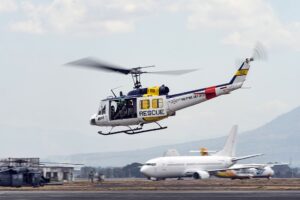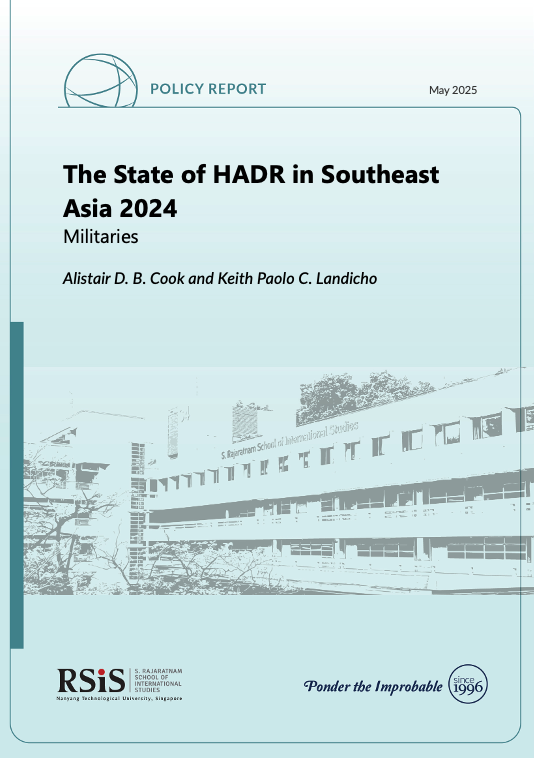16 May 2025
- RSIS
- Publication
- RSIS Publications
- The State of HADR in Southeast Asia 2024: Militaries
Executive Summary
Southeast Asia faces escalating disaster risks, intensified by climate change. Militaries play a critical role in humanitarian assistance and disaster relief (HADR) missions by supplementing and complementing civilian efforts with their specialised capabilities. This report examines the military’s role in HADR within ASEAN from 2014 to 2024 through defence budgets, assets, exercises, and disaster deployments. The supporting evidence is drawn from the RSIS HADR Database. The study employs a data-driven approach using time-series, social network, and matrix analyses to identify trends and relationships. Findings reveal the United States as a global leader while Singapore, Malaysia, and Indonesia lead regionally, supported by strong defence budgets, assets, and active roles in exercises. However, regional interoperability can be hampered by capacity and engagement disparities. Therefore, this report recommends establishing a centralised military HADR data repository and strengthening participation in ASEAN-led exercises. By doing so, these measures could bolster interoperability and enhance the region’s resilience.

Executive Summary
Southeast Asia faces escalating disaster risks, intensified by climate change. Militaries play a critical role in humanitarian assistance and disaster relief (HADR) missions by supplementing and complementing civilian efforts with their specialised capabilities. This report examines the military’s role in HADR within ASEAN from 2014 to 2024 through defence budgets, assets, exercises, and disaster deployments. The supporting evidence is drawn from the RSIS HADR Database. The study employs a data-driven approach using time-series, social network, and matrix analyses to identify trends and relationships. Findings reveal the United States as a global leader while Singapore, Malaysia, and Indonesia lead regionally, supported by strong defence budgets, assets, and active roles in exercises. However, regional interoperability can be hampered by capacity and engagement disparities. Therefore, this report recommends establishing a centralised military HADR data repository and strengthening participation in ASEAN-led exercises. By doing so, these measures could bolster interoperability and enhance the region’s resilience.






